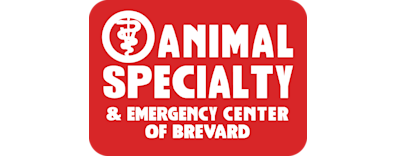Animal Specialty & Emergency Center of Brevard
Brachycephalic Airway Syndrome
Certain breeds of dogs and cats are prone to labored, difficult breathing because of the shape of their head, snout and throat. These are “brachycephalic” breeds. Brachycephalic means “short-headed.”

Brachycephalic Airway Syndrome refers to the combination of elongated soft palate and stenotic nares in brachycephalic breeds (English Bulldog, French Bulldog, Pug, Pekingese, Boston Terrier and Persian Cat).
These conditions lead to airway obstruction, loud, high-pitched breathing and respiratory distress.
If these pets also suffer from laryngeal collapse, this can lead to severe respiratory distress including oxygen deprivation.
The surgery team at Animal Specialty and Emergency Center of Brevard is versed in correcting these breathing issue through nare, soft palate and saccule resection procedures.
Stenotic nare resection should be performed once the animal is old enough to be safely anesthetized and the nasal tissues have matured enough to hold sutures (3-4 months).
Resection of the soft palate is best performed when the patient is young (4- 24 months) before the laryngeal cartilage degenerates to the point of collapse.
Everted saccules are usually removed during the soft palate resection.
Surgical correction can cure signs of respiratory distress and improve quality of life in nearly all patients.
To learn more information about brachycephalic airway syndrome or to schedule a con with our Board Certified Veterinary Surgeon, please call our hospital at (321) 725-5365. We are open 24 hours a day.
